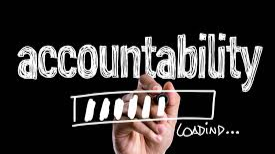
The New Year is a time for fresh starts. It’s a symbolic moment when people across the globe turn the page to begin anew, motivated by a sense of optimism and the possibility of change. Many set New Year’s resolutions, eager to improve themselves or their circumstances in the coming year. The idea is simple: the calendar flips, and so should our habits, health, or personal growth. But let’s face it—this isn’t the first time you’ve thought about making a change. It’s not even the first time you’ve vowed to start fresh. Yet, you may have found that those resolutions tend to fade long before the year ends.
You’ve set goals in the past: lose weight, get fitter, save more money, or finally read that book you’ve been meaning to. And each time, you had the best intentions. But by February, you’re back in the same routine, and the resolution feels like a distant memory. The cycle of good intentions and eventual disappointment is so common that it’s almost expected. But here’s the good news: this year can be different.
Why Resolutions Fail: The Common Pitfalls
Research shows that approximately 80% of New Year’s resolutions fail by February (U.S. News & World Report, 2019). The most common reasons? Unrealistic goals, lack of clear planning, and the challenge of forming lasting habits. For example, making an ambitious goal like “I will lose 30 pounds in one month” is often set up for failure, because it’s both unrealistic and unsustainable. Instead of setting yourself up for inevitable disappointment, it’s crucial to set specific, measurable, and achievable goals.
Another common trap is the lack of a concrete plan. Simply saying “I want to get healthier” isn’t enough. Without clear actions or steps—such as committing to exercise three times a week, cooking more at home, or tracking food intake—it’s easy to get sidetracked. Research from the American Psychological Association shows that people are more likely to succeed when they break their goals into smaller, actionable steps.
Perhaps the biggest reason resolutions falter is the failure to build habits. It takes time and consistency to change behaviors, and it’s difficult to stay motivated without support. This is where an accountability partner comes in.
The Power of Accountability
Accountability is a game-changer when it comes to sticking to New Year’s resolutions. An accountability partner can help keep you on track, offer encouragement during tough times, and hold you responsible for your goals. The concept of accountability has been studied extensively and proven to increase the likelihood of success. According to research from Gretchen Rubin, author of Better Than Before, accountability partners are one of the most effective ways to ensure that new habits stick.
The benefits of accountability are well-documented. Studies show that when people know someone else is watching and supporting their progress, they are more likely to follow through. A study published in The Journal of Applied Psychology found that people who made public commitments were more likely to achieve their goals, because of the social pressure and desire to avoid disappointing others.
An accountability partner acts as both a motivator and a reality check. This person doesn’t have to be someone who shares your exact goals. It could be a friend, family member, colleague, or even a coach. Their role is to check in on your progress regularly, encourage you when you’re feeling discouraged, and hold you accountable for your actions. This added layer of external motivation helps keep you aligned with your resolutions, especially when the going gets tough.
How to Find the Right Accountability Partner
The key to a successful accountability partnership is choosing someone who is supportive, trustworthy, and invested in your success. Ideally, this person should be someone you respect and feel comfortable confiding in. They don’t need to have the same goals as you, but they should be committed to helping you stay on track.
In addition, it’s important to set clear expectations for your partnership. How often will you check in with each other? Will you meet weekly, monthly, or communicate online? Be specific about what you need from each other. Are you seeking advice, motivation, or just someone to listen? Once the ground rules are set, you’ll both be on the same page and more likely to achieve your goals.
Making This Year Different
This year, instead of relying solely on willpower to achieve your New Year’s resolutions, consider adding an accountability partner to the mix. Research shows that this simple step can dramatically improve your chances of success. By setting realistic goals, creating actionable steps, and involving someone who cares about your progress, you increase the likelihood that your resolutions will stick—not just for a few weeks, but for a lifetime. So, why not make this year the year that really changes? Find your accountability partner, set your goals, and watch how far you can go.
